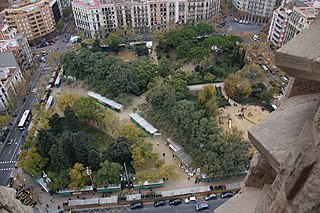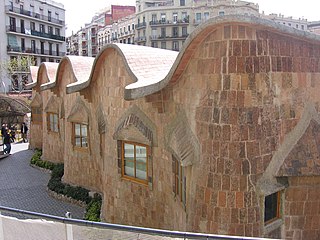Self-guided Sightseeing Tour #12 in Barcelona, Spain
Legend
Guided Free Walking Tours
Book free guided walking tours in Barcelona.
Guided Sightseeing Tours
Book guided sightseeing tours and activities in Barcelona.
Tour Facts
8.9 km
201 m
Experience Barcelona in Spain in a whole new way with our self-guided sightseeing tour. This site not only offers you practical information and insider tips, but also a rich variety of activities and sights you shouldn't miss. Whether you love art and culture, want to explore historical sites or simply want to experience the vibrant atmosphere of a lively city - you'll find everything you need for your personal adventure here.
Activities in BarcelonaIndividual Sights in BarcelonaSight 1: Portal Miralles
The door and fence of the Miralles estate is a work by Antoni Gaudí declared a cultural asset of national interest. Located on Passeig de Manuel Girona in Barcelona, it is the only one that remains of the house of Hermenegild Miralles i Anglès.
Sight 2: Jardins de Piscines i esports
The Swimming Pools and Sports Gardens are located in the Sarrià-Sant Gervasi district of Barcelona. Its origin lies in the sports complex of the same name inaugurated in 1935, which had formerly housed the Real Club de Polo. In 2008, part of which became a public garden, while the rest of the land still remains several sports facilities.
Sight 3: Sant Gregori Taumaturg
The church of San Gregorio Thaumaturgo is a Roman Catholic building located in the square of the same name in the district of Sarriá-San Gervasio, in the city of Barcelona (Spain). It is consecrated to the third-century saint Gregory Thaumaturgus, one of the Fathers of the Church and Bishop of Neocaesarea of Pontus Polemoniacus.
Sight 4: Turó Parc
The Turó Parc or Gardens of the poet Eduard Marquina is a green area in the Sant Gervasi-Galvany neighbourhood of Barcelona, listed as an asset with elements of interest. They are dedicated to the Catalan writer Eduard Marquina i Angulo.
Sight 5: Museum and Study Center of Sport Doctor Melcior Colet
The Museum and Study Center of Sport Doctor Melcior Colet is a facility dedicated to the promotion and exhibition of the most prominent in the development of the history of the sport in Catalonia in recent centuries. It is based in an Art Nouveau house built in 1911 by Josep Puig i Cadafalch the Casa Pere Company, which is located in Buenos Aires street, 56, Barcelona.
Wikipedia: Museum and Study Center of Sport Doctor Melcior Colet (EN)
Sight 6: Casa Sayrach
Casa Sayrach is a building located on Avinguda Diagonal and Carrer d'Enric Granados, in the Esquerra de l'Eixample neighbourhood of Barcelona, listed as a cultural asset of national interest.
Sight 7: Jove Teatre Regina
The Jove Teatre Regina is a theatrical space located at Calle Seneca núm. 22 in Barcelona.
Sight 8: Plaça de la Vila de Gràcia
The Plaça de la Vila de Gràcia is a square in the Gràcia district of Barcelona and the administrative centre of the district of Gràcia. It is framed by the streets Matilde, Mariana Pineda, Penedès, Diluvi, Francisco Giner, Mozart, Goya and Sant Domènec. It is one of the busiest social centres in the Gràcia neighbourhood. It regained its popular name in 2009 after a public consultation, although it is also popularly known as Plaça del Campanar or Plaça del Rellotge. It is a space included in the Inventory of the Architectural Heritage of Catalonia.
Sight 9: Oda nova a Barcelona
The Empordà or New Ode to Barcelona is a sculpture by the artist Ernest Maragall i Noble located in the Jardinets de Gràcia in Barcelona.
Sight 10: Palau Robert
Palau Robert is a building on Barcelona's Passeig de Gràcia 107, the former private residence of Robert i Surís, an influential aristocrat, politician and businessman at the turn of the 20th century. It's now a government-run institution that hosts an exhibition centre with three halls, a concert hall and gardens as well as the Information Tourist Centre for Catalonia. In the 1936–1939 period, it was the site of the Generalitat de Catalunya's Ministry of Culture. After the Spanish Civil War, Robert's family regained the Palau, until its second purchase by the Generalitat de Catalunya in 1981, when it became a public building.
Sight 11: Parròquia de Sant Raimon de Penyafort
Santa Maria de Montsió was a monastery located in Carrer de Montsió and Plaça de Santa Anna in Barcelona, which has now disappeared, although the church and cloister of which were dismantled to be rebuilt on the Rambla de Catalunya, and after the Spanish Civil War, the latter was again dismantled and moved to Esplugues de Llobregat. Likewise, the Museu Nacional d'Art de Catalunya (MNAC) exhibits a funerary urn of Fra Francesc Botella, who died in 1376, from the monastery.
Sight 12: Baron of Quadras Palace
The Palau Baró de Quadras is a small modernista palace located in Barcelona on Avinguda Diagonal, equidistant from La Pedrera and Casa de les Punxes. It was built by the Catalan architect Josep Puig i Cadafalch between 1904 and 1906. In 1976 it was designated as Nacional National Historical Monument of Artistic Interest. Currently houses the main offices of the Institut Ramon Llull.
Sight 13: Casa Comalat
Casa Comalat is a modernist building located on Avenida Diagonal and Carrer de Còrsega in Barcelona's Eixample, listed as a Cultural Asset of Local Interest. It is the most important and personal work of the architect Salvador Valeri i Pupurull, who used characteristic cartilaginous and voluminous shapes inspired by Gaudí and with a Rococo-inspired decoration.
Sight 14: Jardins de Carme Biada
The Carme Biada Gardens are a green area inside the block of Roger de Llúria, Rosselló, Bruc and Còrsega streets in Barcelona's Dreta de l'Eixample.
Sight 15: Casa de les Punxes
The Casa de les Punxes or Casa Terradas is a building designed by the Modernista architect Josep Puig i Cadafalch. Located in the intersection between the streets of Rosselló, Bruc and the Avinguda Diagonal in the Barcelona Eixample area.
Sight 16: A Narcís Monturiol
A Narcís Monturiol or Ictineu is a monument by the artist Josep Maria Subirachs located at the intersection of Avinguda Diagonal and Carrer Girona in Barcelona.
Sight 17: Monument a Anselm Clavé
The Monument to Josep Anselm Clavé is a historicist style sculpture designed by the architect Josep Vilaseca and crowned with a sculpture by the Barcelona sculptor Manuel Fuxà that represents the Barcelona composer Josep Anselm Clavé, a work of Barcelona protected as a Cultural Asset of Local Interest.
Sight 18: Font d'Hèrcules
The Source of Hercules is a work located to the confluence of Stroll of San Juan with the street of Corsica of Barcelona, cataloged like cultural good of local interest.
Sight 19: Palau Macaya
The Palau Macaya is a modernist building at Passeig de Sant Joan, 108 in Barcelona, declared a national monument by the Ministry of Education and Science on January 9, 1976, along with other works by Puig i Cadafalch. In 1979 it became the first headquarters of the cultural centre of la Caixa, currently CaixaForum Macaya.
Sight 20: Monument a Mossèn Jacint Verdaguer
The monument to Mossèn Jacint Verdaguer, popularly known as El cuervo or La palmatòria, is a monument in the Noucentista style designed by the architect Josep Maria Pericas and crowned with a bronze statue by the sculptor Joan Borrell i Nicolau that represents the poet Jacint Verdaguer i Santaló. Llucià Oslé and Miquel Oslé are the authors of the reliefs that make up the frieze that surrounds the monument, alluding to several poems by Verdaguer. The monument is located in Plaça de Mossèn Jacint Verdaguer, at the intersection of Passeig de Sant Joan and Avinguda Diagonal.
Sight 21: Sant Francesc de Sales
The church and convent of Les Saleses is a complex formed by the church and the old convent of the Saleses nuns of the Order of the Visitation, located on the Paseo de San Juan in Barcelona, between the streets of Valencia and Aragón. It was designed by Joan Martorell i Montells. Work on the convent began in 1877 and the church was built between 1882 and 1885, corresponding to the current parish of Sant Francesc de Sales. The old convent was converted in 1943 into a school of the Marist Brothers. It is a work protected as a cultural asset of local interest.
Sight 22: Jardins de Beatriu de Provença (Myrurgia)
The Myrurgia Factory is a building located at Carrer de Nàpols, 238 and Carrer de Mallorca, 351 in the Sagrada Familia district of Barcelona, listed as a cultural asset of local interest.
Sight 23: Plaça de la Sagrada Família
La Plaça de la Sagrada Família és una plaça de Barcelona situada al barri de la Sagrada Família, a prop del temple de la Sagrada Família i que dona nom a la plaça. Es troba entre els carrers de Mallorca, Provença, Sardenya i Sicília. La plaça ha estat remodelada diversos cops per tal de donar-li amplitud i adequar-la a la gran afluència de visitants que té el temple.
Sight 24: Sagrada Família Schools
The Sagrada Família Schools building was constructed in 1909 by the modern Spanish architect Antoni Gaudí near the site of the Basílica de la Sagrada Família. It was a small school building for the children of the workers building the Sagrada Família, although other children of the neighborhood attended, especially from the underprivileged classes. The teaching was in the charge of Magin Espina Pujol, math teacher and friend of Gaudí, whose photo teaching classes are in the current school.
Share
Disclaimer Please be aware of your surroundings and do not enter private property. We are not liable for any damages that occur during the tours.
GPX-Download For navigation apps and GPS devices you can download the tour as a GPX file.
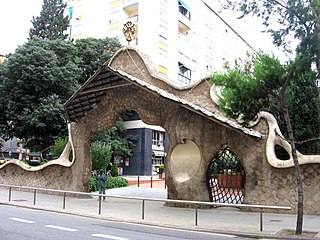
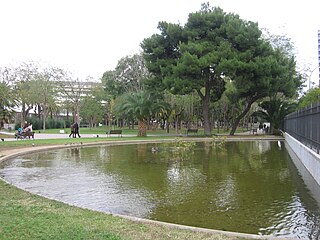
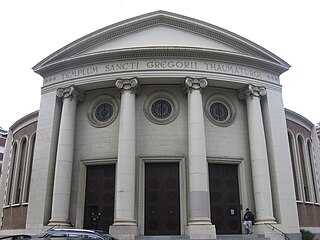
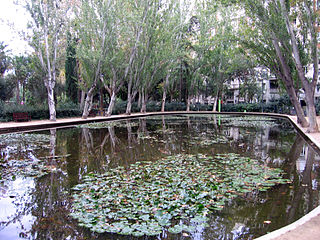
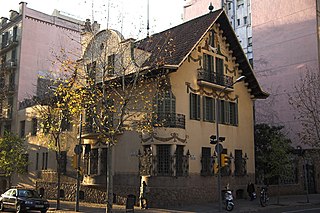
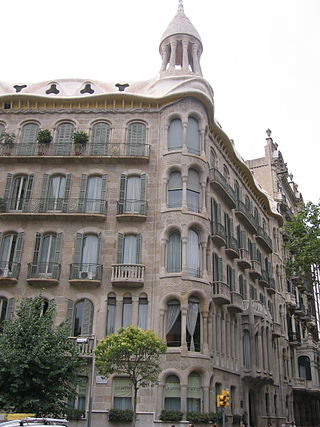
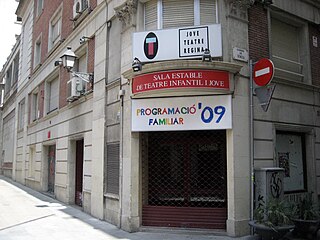
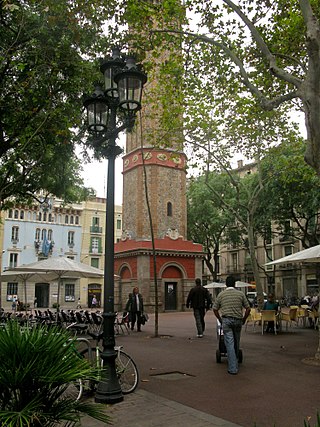
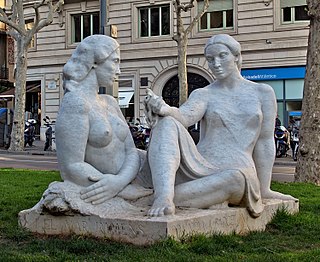
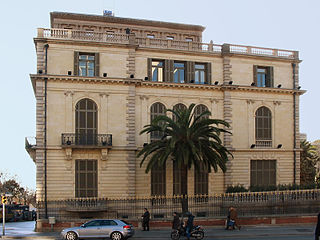
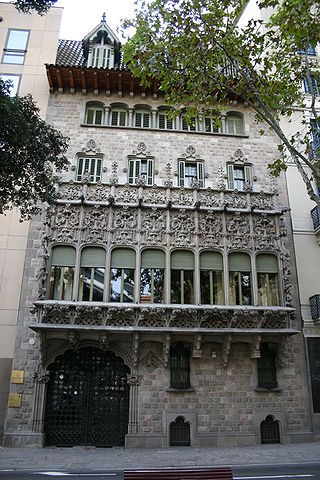
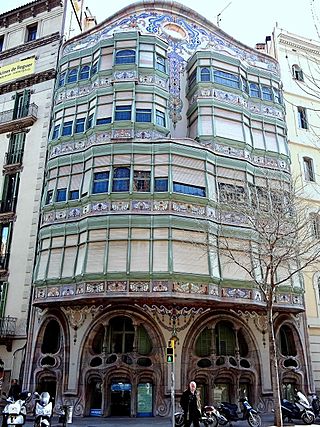
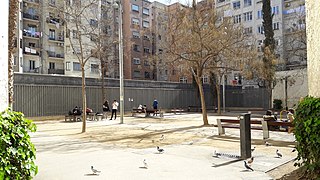
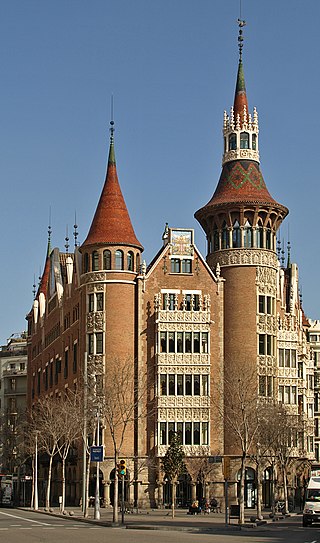
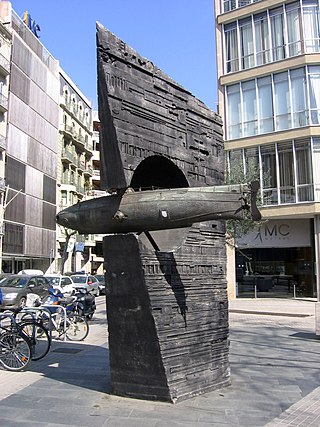
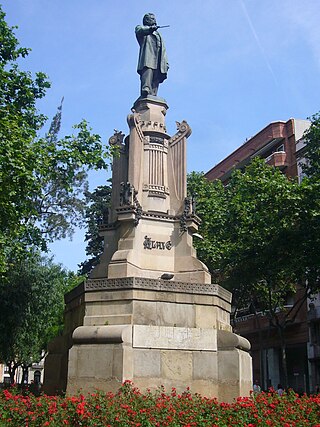
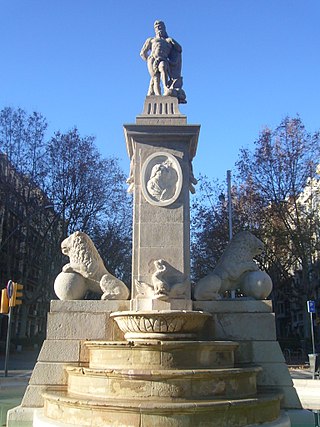
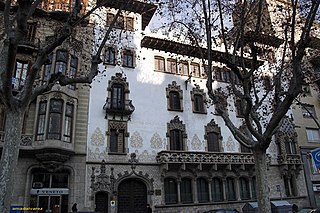
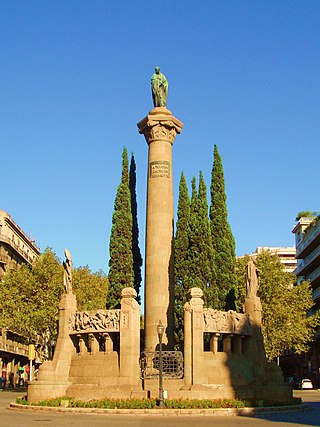
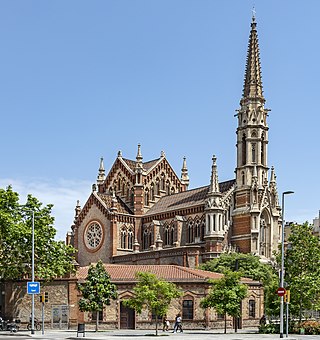
.jpg)
